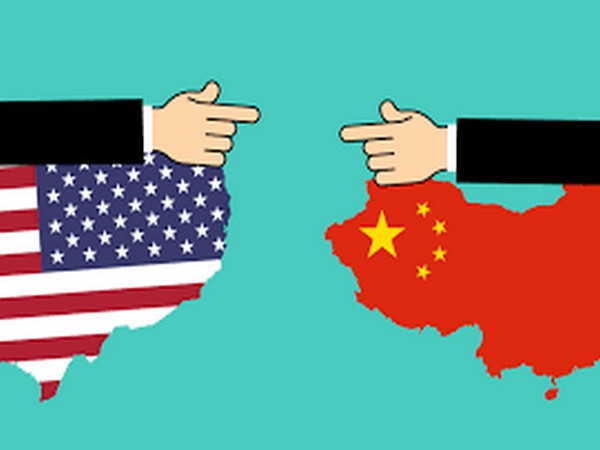US lawmakers introduce resolution to scrap 'one-China policy'
Deeming one-China policy as outdated and counter-productive, two United States congressmen have introduced a resolution calling for the US government to resume formal diplomatic relations with Taiwan.

- Country:
- United States
Deeming one-China policy as outdated and counter-productive, two United States congressmen have introduced a resolution calling for the US government to resume formal diplomatic relations with Taiwan. The bill, US Congress House Concurrent Resolution 21, was sponsored by US House representatives Tom Tiffany and Scott Perry on February 26, Focus Taiwan reported. The resolution called US government to scrap the one-China policy.
The new resolution urged the US government to resume normal diplomatic ties with Taiwan, negotiate a bilateral free trade agreement with Taiwan, and support Taiwan's membership in international organizations. According to Focus Taiwan, the US government switched diplomatic recognition from Taipei to Beijing in 1979 and has since maintained only unofficial diplomatic relations with Taiwan as defined by the Taiwan Relations Act.
According to the texts of the bill, the "one China policy" is obsolete, does not serve the people of Taiwan or the US and fails to reflect the reality that Taiwan has been a sovereign and independent country for over 70 years. It also said Beijing has weaponised the "one China policy" to block Taiwan's membership and full participation in international organizations and events, "ranging from the United Nations and the World Health Organization to the Olympic Games."
Taiwan has actually regularly participated in the Olympic Games, but under the name "Chinese Taipei." Beijing claims full sovereignty over Taiwan, a democracy of almost 24 million people located off the southeastern coast of mainland China, despite the fact that the two sides have been governed separately for more than seven decades.
Taipei, on the other hand, has countered the Chinese aggression by increasing strategic ties with democracies including the US, which has been repeatedly opposed by Beijing. "The President should recognize the legitimacy of the democratically elected national government in Taipei, normalize diplomatic relations between our two nations, appoint a U.S. ambassador to Taiwan, and receive a Taiwanese ambassador to the U.S.," the bill said.
It also called for the U.S. Trade Representative to initiate formal negotiations with Taiwan on the establishment of a U.S.-Taiwan Free Trade Agreement. The previous US administration in January announced lifting restrictions governing official US contacts with the country.
Former Foreign Secretary Mike Pompeo said that executive branch agencies should consider all "contact guidelines" regarding relations with Taiwan previously issued by the Department of State under authorities delegated to the Secretary of State to be 'null and void'. In February, Senator Rick Scott reintroduced the Taiwan Invasion Prevention Act, sponsored by Congressman Guy Reschenthaler in the US House of Representatives, to protect Taiwan from Communist China's growing aggression.
The Taiwan Invasion Prevention Act further reinforces the US-Taiwan relationship and strengthens Taiwan's ability to resist Communist China's aggressive policies and military actions. In recent months, China has increased its military activities around Taiwan.
According to China, it is responding to what it calls "collusion" between Taipei and Washington, Taiwan's main international backer and weapons supplier, CNN said. In November, the United States and Taiwan signed a blueprint for closer economic ties in Washington.
Meanwhile, Chinese President Xi Jinping has already made his intentions clear about Taiwan as he has vowed to never allow the island to become independent and has refused to rule out the use of force if necessary. (ANI)
(This story has not been edited by Devdiscourse staff and is auto-generated from a syndicated feed.)
ALSO READ
Markets Brace for Tense Week Amid U.S. Election and Global Rate Decisions
Market Jitters as U.S. Election Looms and Dollar Slides
Clash of Titans: Harris vs. Trump in Historic U.S. Presidential Race
Palau's High-Stakes Election Amid U.S.-China Tensions
Market Jitters: Key Week for China and U.S. Economy










